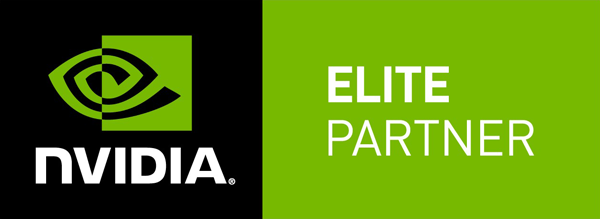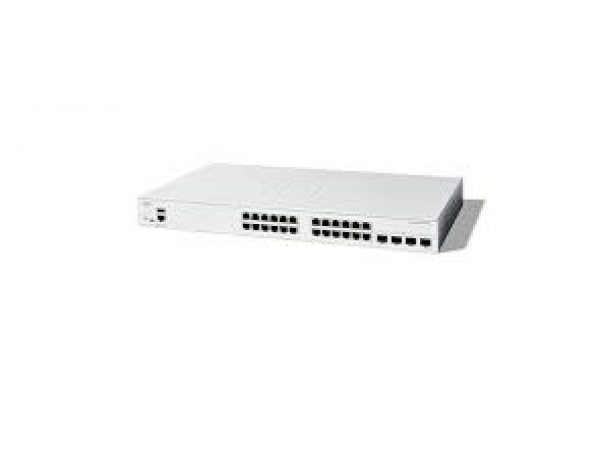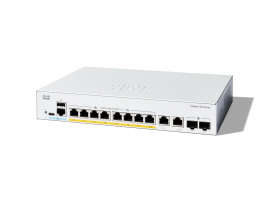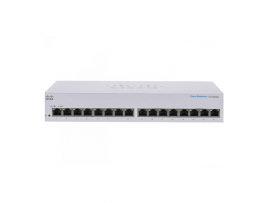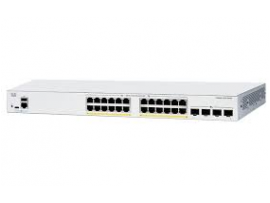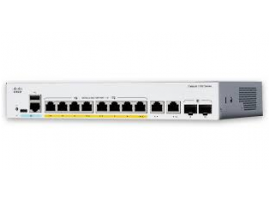-
Server
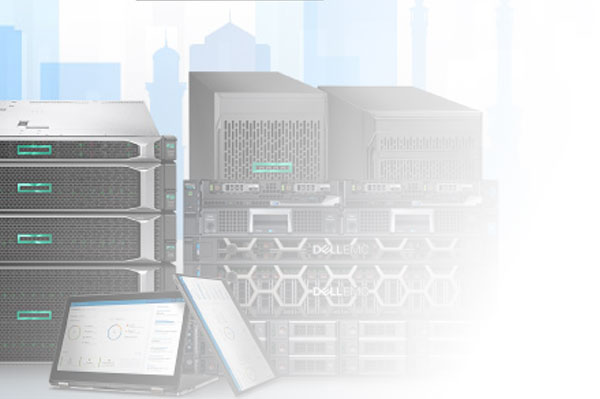 Hãng sản xuấtTheo cấu hình
Hãng sản xuấtTheo cấu hình -
Workstation
 Hãng sản xuấtWorkstation
Hãng sản xuấtWorkstation - Storage
-
Parts
Hãng sản xuấtTheo dòng máy chủ
-
Networking
 Hãng sản xuất
Hãng sản xuất - License
-
Giải pháp

- Blog
- Thông tin
- Liên hệ
Danh mục
Switch Cisco Catalyst C1200-24T-4X 24x 10/100/1000 ports, 4x 10G SFP+
- Nhà sản xuất: Cisco
- Model No. C1200-24T-4X
- Tình trạng: Liên hệ đặt hàng
Giá bán: Call
NVKD sẽ liên hệ lại ngay
Thông tin sản phẩm Switch Cisco Catalyst C1200-24T-4X 24x 10/100/1000 ports, 4x 10G SFP+
| Performance | |
| Switching capacity | 128.0 Gbps |
| Forwarding rate | 95.23 Mbps |
| Layer 2 switching | |
| Spanning Tree Protocol (STP) | Standard 802.1d spanning tree support |
| Fast convergence using 802.1w (Rapid Spanning Tree Protocol [RSTP]), enabled by default Multiple spanning tree instances using 802.1s (MSTP); 8 instances are supported | |
| Per-VLAN Spanning Tree Plus (PVST+); 126 instances are supported | |
| Rapid PVST+ (RPVST+); 126 instances are supported | |
| Port grouping/link aggregation | Support for IEEE 802.3ad Link Aggregation Control Protocol (LACP) |
| Up to 4 groups | |
| Up to 8 ports per group with 16 candidate ports for each (dynamic) 802.3ad Link Aggregation Group (LAG) | |
| VLAN | Support for up to 255 active VLANs simultaneously Port-based and 802.1Q tag-based VLANs Management VLAN |
| Guest VLAN | |
| Auto Surveillance VLAN (ASV) | |
| Voice VLAN | Voice traffic is automatically assigned to a voice-specific VLAN and treated with appropriate levels of QoS. Voice Services Discovery Protocol (VSDP) delivers networkwide zero-touch deployment of voice endpoints and call control devices |
| Generic VLAN Registration Protocol (GVRP) and Generic Attribute Registration Protocol (GARP) | Enable automatically propagation and configuration of VLANs in a bridged domain |
| Internet Group Management Protocol (IGMP) versions 1, 2, and 3 snooping | Limits bandwidth-intensive multicast traffic to only the requesters; supports 255 multicast groups (source-specific multicasting is also supported) |
| IGMP querier | Used to support a Layer 2 multicast domain of snooping switches in the absence of a multicast router |
| Head-of-Line (HOL) blocking | HOL blocking prevention |
| Loopback detection | Provides protection against loops by transmitting loop protocol packets out of ports on which loop protection has been enabled. It operates independently of STP |
| Layer 3 routing | |
| IPv4 routing | Wire-speed routing of IPv4 packets |
| Up to 32 static routes and up to 16 IP interfaces | |
| IPv6 routing | Wire-speed routing of IPv6 packets |
| Layer 3 interface | Configuration of Layer 3 interface on physical port, LAG, VLAN interface, or loopback interface |
| Classless Interdomain Routing (CIDR) | Support for CIDR |
| Dynamic Host Configuration Protocol (DHCP) relay at Layer 3 | Relay of DHCP traffic across IP domains |
| User Datagram Protocol (UDP) relay | Relay of broadcast information across Layer 3 domains for application discovery or relaying of Bootstrap Protocol (BootP)/DHCP packets |
| Security | |
| Secure Sockets Layer (SSL) | Encrypts all HTTPS traffic, allowing secure access to the browser-based management GUI in the switch |
| SSH Protocol | SSH is a secure replacement for Telnet traffic. Secure Copy (SCP) also uses SSH. SSH v1 and v2 are supported. |
| IEEE 802.1X (authenticator role) | RADIUS authentication, guest VLAN, single/multiple host mode, and single/multiple sessions |
| STP loopback guard | Provides additional protection against Layer 2 forwarding loops (STP loops) |
| Secure Core Technology (SCT) | Ensures that the switch will receive and process management and protocol traffic no matter how much traffic is received |
| Secure Sensitive Data (SSD) | A mechanism to manage sensitive data (such as passwords, keys, and so on) securely on the switch, populating this data to other devices and a secure auto-configuration. Access to view the sensitive data as plain text or encrypted is provided according to the user- configured access level and the access method of the user |
| Trustworthy systems | Trustworthy systems provide a highly secure foundation for Cisco products |
| Run-time defenses (Executable Space Protection [X-Space], Address Space Layout Randomization [ASLR], Built-In Object Size Checking [BOSC]) | |
| Port security | Ability to lock source MAC addresses to ports and limit the number of learned MAC addresses |
| RADIUS | Supports RADIUS authentication for management access. Switch functions as a client |
| Storm control | Broadcast, multicast, and unknown unicast |
| DoS prevention | DoS attack prevention |
| Multiple user privilege levels in CLI | Level 1, 7, and 15 privilege levels |
| ACLs | Support for up to 512 rules |
| Drop or rate limit based on source and destination MAC, VLAN ID, IPv4 or IPv6 address, IPv6 flow label, protocol, port, Differentiated Services Code Point (DSCP)/IP precedence, TCP/UDP source and destination ports, 802.1p priority, Ethernet type, Internet Control Message Protocol (ICMP) packets, IGMP packets, TCP flag; ACL can be applied on both ingress and egress sides | |
| Time-based ACLs supported | |
| Quality of service | |
| Priority levels | 8 hardware queues |
| Scheduling | Strict priority and Weighted Round-Robin (WRR) queue assignment based on DSCP and Class of Service (802.1p/CoS) |
| Class of service | Port based, 802.1p VLAN priority based, IPv4/v6 IP precedence/Type of Service (ToS)/DSCP based, Differentiated Services (DiffServ), classification and re-marking ACLs, trusted QoS |
| Rate limiting | Ingress policer, egress shaping and rate control per VLAN, per port, and flow based |
| Congestion avoidance | A TCP congestion avoidance algorithm is required to reduce and prevent global TCP loss synchronization |
| IPv6 | |
| IPv6 | IPv6 host mode IPv6 over Ethernet Dual IPv6/IPv4 stack |
| IPv6 Neighbor Discovery (ND) | |
| IPv6 stateless address auto-configuration | |
| Path Maximum Transmission Unit (MTU) discovery Duplicate Address Detection (DAD) | |
| ICMP version 6 | |
| IPv6 over IPv4 network with Intrasite Automatic Tunnel Addressing Protocol (ISATAP) support | |
| USGv6 and IPv6 Gold Logo certified | |
| IPv6 QoS | Prioritizes IPv6 packets in hardware |
| IPv6 ACL | Drop or rate-limit IPv6 packets in hardware |
| Multicast Listener Discovery (MLD v1/2) snooping | Delivers IPv6 multicast packets only to the required receivers |
| IPv6 applications | Web/SSL, Telnet server/SSH, Ping, Traceroute, Simple Network Time Protocol (SNTP), Trivial File Transfer Protocol (TFTP), Simple Network Management Protocol (SNMP), RADIUS, Syslog, DNS client, DHCP client, DHCP auto-configuration |
| Management | |
| Cisco Business Dashboard | Support for embedded probe for Cisco Business Dashboard running on the switch. Eliminates the need to set up a separate hardware or Virtual Machine for the Cisco Business Dashboard probe onsite |
| Cisco Business mobile app | Mobile app for Cisco Business switch and wireless products. Helps to set up a local network in minutes and provide easy management at your fingertips. |
| Cisco Network Plug and Play (PnP) agent | The Cisco Network PnP solution provides a simple, secure, unified, and integrated offering to ease new branch or campus device rollouts or for provisioning updates to an existing network. The solution provides a unified approach to provision Cisco routers, switches, and wireless devices with a near-zero-touch deployment experience. |
| Supports Cisco PnP Connect | |
| Web user interface | Built-in switch configuration utility for easy browser-based device configuration (HTTP/HTTPS). Supports configuration, wizards, system dashboard, system maintenance, and monitoring |
| Basic and advanced mode for maximum operational efficiency | |
| SNMP | SNMP versions 1, 2c, and 3 with support for traps, and SNMP v3 User-Based Security Model (USM) |
Xem thêm
Sản phẩm liên quan(4)
CBS110-16T-EU Switch Cisco Layer 2 16 Cổng GE
4.180.000 VNĐ
Copyright © 2025 thegioimaychu.vn. All Rights Reserved.


